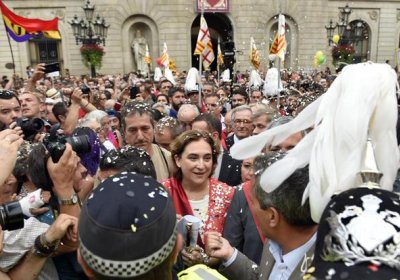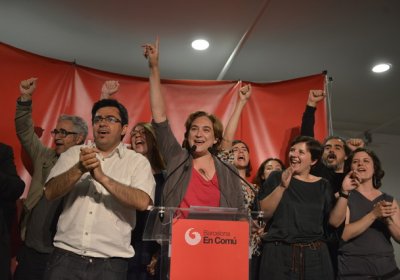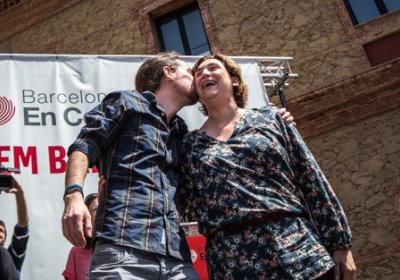Barcelona
 Podemos activists
The December 20 elections in the Spanish state will attract the usual large field of runners. Challengers will represent every imaginable position along the Spanish state's two main political dimensions — the left-to-right social axis and the axis of national rights.
This second dimension reaches from the centralism of the ruling People's Party (PP) to the pro-independence stance of various Catalan, Basque and Galician parties.
Podemos activists
The December 20 elections in the Spanish state will attract the usual large field of runners. Challengers will represent every imaginable position along the Spanish state's two main political dimensions — the left-to-right social axis and the axis of national rights.
This second dimension reaches from the centralism of the ruling People's Party (PP) to the pro-independence stance of various Catalan, Basque and Galician parties.
 More than 1 million people took part in a pro-independence march in Barcelona on September 11, Catalonia's national day.
A year has passed since the British establishment won the September referendum on Scottish independence with a final campaign week of blackmail, dirty tricks and multi-party sworn promises yet to be kept.
More than 1 million people took part in a pro-independence march in Barcelona on September 11, Catalonia's national day.
A year has passed since the British establishment won the September referendum on Scottish independence with a final campaign week of blackmail, dirty tricks and multi-party sworn promises yet to be kept.
If a Catalan Rip Van Winkle were to wake up today after a sleep of only six years, his disorientation with Catalonia would be as great as that of the original Rip Van Winkle after he dozed right through the American War of Independence. “Am I hallucinating?” he might ask, struggling to find the right answer to questions like:
It was clear early on that something special was happening in the May 24 local government and regional elections across the Spanish state. In Spanish elections, the voter participation rate gets announced at 1pm and 6pm — while voting is still taking place. Well before the polling stations closed, the news was that participation was up about 5% in Catalonia and about 8% in the working-class districts of Barcelona.
- Previous page
- Page 10
- Next page









